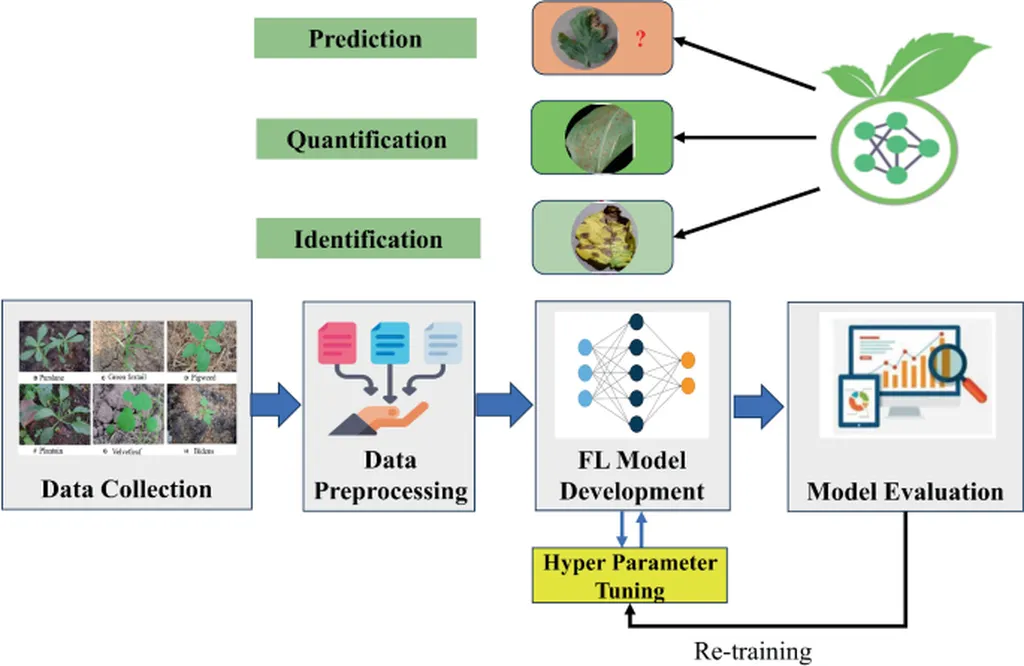In the heart of France, a groundbreaking approach to crop disease management is taking root, promising to revolutionize agriculture and bolster food security. Denis Mamba Kabala, a researcher at INSA CVL, Université d’Orléans, has pioneered a decentralized federated learning (FL) method that could change the game for farmers and agribusinesses worldwide. His work, published in *Ecological Informatics* (which translates to *Ecological Information Science*), offers a glimpse into a future where data privacy, model robustness, and collaborative learning converge to protect crops and enhance yields.
Agriculture is the backbone of many economies, but crop diseases pose a significant threat to this vital sector. Early detection and diagnosis are crucial for mitigating losses, and artificial intelligence (AI) has emerged as a powerful tool in this arena. However, traditional AI methods often grapple with challenges like data privacy, edge device compatibility, and collaborative learning. Enter federated learning, a machine learning approach that enables model building without compromising data security. Kabala’s research takes this a step further by employing decentralized FL, which uses peer-to-peer communication to update models for each client, ensuring data remains localized and secure.
“Decentralized FL offers significant advantages over centralized approaches,” Kabala explains. “It improves rapid convergence to high and stable performance, making it an ideal solution for real-world agricultural applications.”
Kabala’s study implemented and tested two types of deep learning architectures: convolutional neural networks (CNNs) and vision transformers (ViTs). The evaluation focused on accuracy and F1-score, two critical metrics for model performance. The research also explored the impact of various factors, such as the number of shared models, communication cycles, number of clients involved, local iterations, and training data size, on model performance.
The results are promising. Decentralized FL not only enhances model robustness but also ensures data privacy, a critical consideration for farmers who may be wary of sharing sensitive information. This approach could pave the way for more collaborative and secure AI applications in agriculture, ultimately leading to better crop disease management and increased agricultural resilience.
The commercial implications are substantial. Agribusinesses can leverage this technology to develop more effective and privacy-preserving AI models, enhancing their offerings and gaining a competitive edge. Farmers, too, stand to benefit from improved disease detection and diagnosis tools, leading to higher yields and greater food security.
As Kabala’s research demonstrates, the future of agriculture lies in the intersection of AI, data privacy, and collaborative learning. By embracing decentralized FL, the agricultural sector can overcome longstanding challenges and usher in a new era of innovation and productivity. The work published in *Ecological Informatics* is a testament to the power of interdisciplinary research and its potential to transform industries and lives.
In the coming years, we can expect to see more applications of decentralized FL in agriculture and beyond. As the technology matures, it will likely become an integral part of the agricultural toolkit, helping farmers and agribusinesses navigate the complexities of modern farming. The journey has just begun, but the destination—a future of secure, collaborative, and intelligent agriculture—is already within sight.

